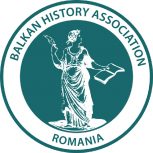The Carpathian Mountains embrace the cultures of Austria, the Czech Republic, Poland, Romania, Serbia, Slovakia, and Ukraine. The historical relations and mobility along the Carpathian arc have left diverse imprints on the ethnographic character of the local communities and over all their aspects of life. Until today, several traditional practices are still active that have framed the cultural patterns of the region. They deserve investigations in the direction of interpreting the current content and form, functions, and ways of acting of the cultural elements within the contemporary theoretical approaches and viewing them in wider case studies.
Likes other regions in the world, the Carpathian communities are passing through the processes of re-evaluating and preserving their endangered heritage, and using the resources of their traditional cultures to ensure a sustainable development of their society and the wellbeing of its members. The congruent and changing connections between nature and communities condition professionals in natural and social sciences to intersect theoretically and practically in their discourse, in order to provide valuable scientific outcomes.
The Balkan History Association and the Department of Archaeology and Cultural Anthropology, Comenius University in Bratislava are preparing a volume dedicated to the cultures and heritage of the communities along the Carpathian arc. Researchers from the fields of social and cultural anthropology, human geography, social history, sociology and ethnopsychology, ethnolinguistics and folklore, religious studies, heritage studies, ethnoarchaeology, cultural studies, etc., are invited to submit their contributions. Interdisciplinary papers are welcome; contributors are encouraged to analyze, debate, and compare topics on the following large themes, but are not limited to them:
- Traditional occupations facing technological and ecological problems
- Mountain habitats, settlements, and migration
- Local communities and globalization
- Ways of life and social structures
- Convergences of folk and official religion in local cultures
- Crafts, tourism, and consumer culture
- Common and shared food culture
- Beliefs, magic, and medicine
- Folklore and media
The volume will give a holistic view of the culture of the Carpathians, in order to forecast inevitable future tendencies in studying the local cultures and to answer the issues the communities are facing. As well, it is interesting to know what is Carpathians identity and what unites and differences the cultural communities of the region nowadays? Also, the content of the proposed volume required to discover and understand the state of the heritage of the region in the present and unstable sociopolitical and economical challenges.
Submission procedure
Manuscripts must not have been published, submitted for publication, or made available on the internet elsewhere. Please submit your proposal, including the title of your manuscript, an abstract (up to 300 words), and an author’s biography (up to 100 words) to dorinaonica@yahoo.com The abstract should include the research question and purpose, the approach, methodology, and main ideas, and results. The articles should not exceed 8,000 words in length including footnotes and references (reference list or bibliography).
Deadlines
January 30, 2025: Submission of proposals
March 1, 2025: Notification of accepted proposals
September 1, 2025: Receipt of final chapters for peer-review
November 1, 2025: Revised chapters re-submitted to editors
Editors
Dorina Dragnea (Balkan History Association)
Marta Botiková (Comenius University, Bratislava)
Christene d’Anca (University of California, Santa Barbara)
Please circulate this call for papers among your colleagues and other potentially interested scholars.

